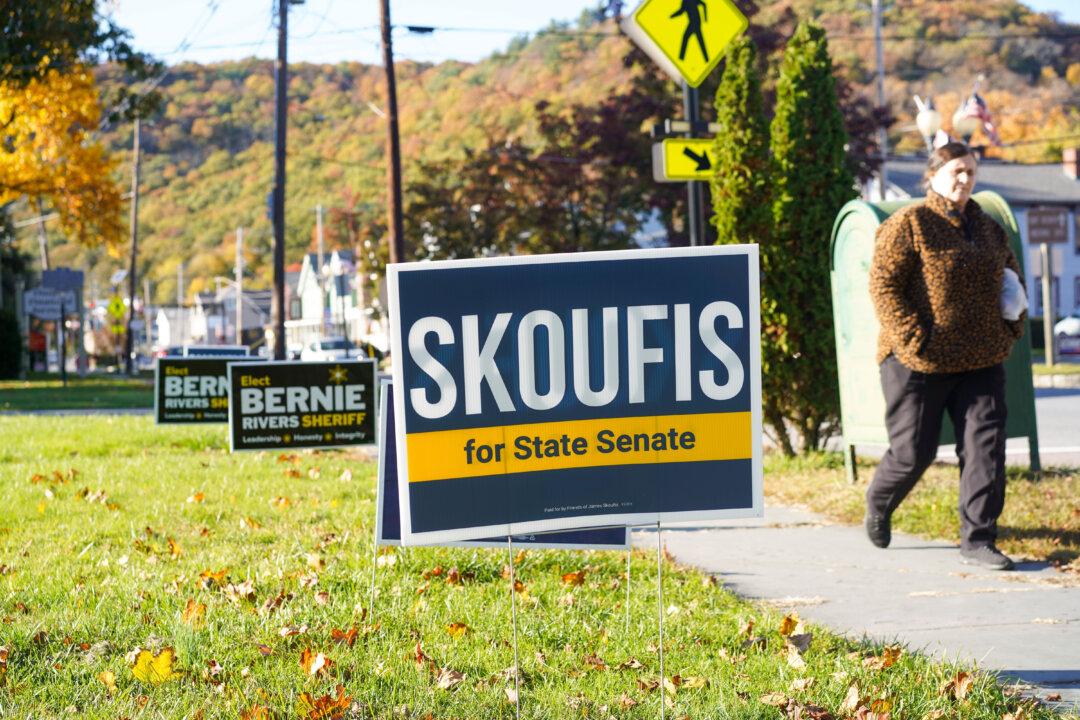Republican candidate Dorey Houle conceded to Democrat James Skoufis on Nov. 30 in the New York 42nd Senate District race, following fresh results of absentee ballots and affidavits.
The final tally shows Skoufis got 49,720 votes—1,434 more than Houle.





